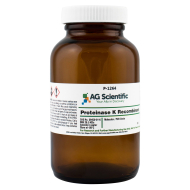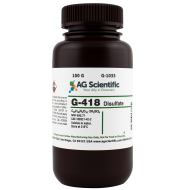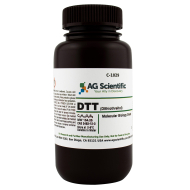Making a year-end decision to change an established manufacturing partnership in the life science, diagnostic, medical device, and pharmaceutical industries is one of the most difficult decisions you will ever make in your organization. I am a 30-year veteran of the life sciences industry, currently serving as Founder/CEO of AG Scientifi. Below, I list top issues that drove me to the decision to initiate change control with manufacturers:

1. Manufacturer no longer meets obligations or solves our problem
Pharmaceutical and biotechnology companies making products for human use have an obligation to ensure that their products are safe, effective, meet established regulatory expectations and licenses, and are available to the patients who rely on them.2. Manufacturer's communication & transparency
Manufacturers must place knowledgeable people on quality issues with full access to all superior personnel (MFG, QC. OPER., PKG…). Manufacturers must provide clear, concise, streamlined communication to the issue at hand. These personnel must provide answers to move the issue promptly forward and communicate back to troubled clients. Speed, clarity of response, and strict adherence to client’s time-frame are the most critical factors in successful resolution of issues.3. Manufacturer is no longer compliant with standards
- Manufacturer follows ISO standards: This is truest measure of a top tier ISO-certified organization dedicated to continual improvement. If you see bedrock ISO standards fall when put under scrutiny, then what else is being neglected?
- Mandatory Notification of Change: Biotech and pharmaceutical products, if defective, have a high potential to harm the patients who are using them. An established process for Supplier-Initiated Changes (SIC) or Corrective Action/Preventative Action (CAPA) must be in place and followed per ISO/USDA/FDA/ICH standards and guidelines.
4. Manufacturer responsibility
I have numerous analogies I can use but the one I see most frequently: "too many cooks in the kitchen but only one chef" taking real leadership. The chef should be coordinating quality risk management across various functions and departments of their organization. They should ensure there is prompt risk assessment, risk review, and especially risk communication with the client.5. Manufacturer should have proper personnel in place
Ensure there is an interdepartmental team with intimate knowledge in place to identify an issue, know scope of impact, and review with quality/manufacturing team to propose solutions. A customer service/sales team should be in place to communicate a time-frame toward resolution for clients.6. Manufacturer denies rights of client
- Access to proper people: Without knowledge or scope of hazard, there will be failure. Additionally, manufacturing personnel have no idea of time frame to resolution and ultimate Root Cause analysis.
- Access to inventory knowledge: If a manufacturer has a back-order/quality concern, the client deserves to know when, where, and how the issue will be resolved. Failure to do so is grounds for terminating the relationship.
- Denial to audit facility: When a manufacturing issue has been communicated to a client, they ultimately have the right to visit the facility and come to their own independent conclusion. Failure to do so is also grounds for terminating the relationship.


